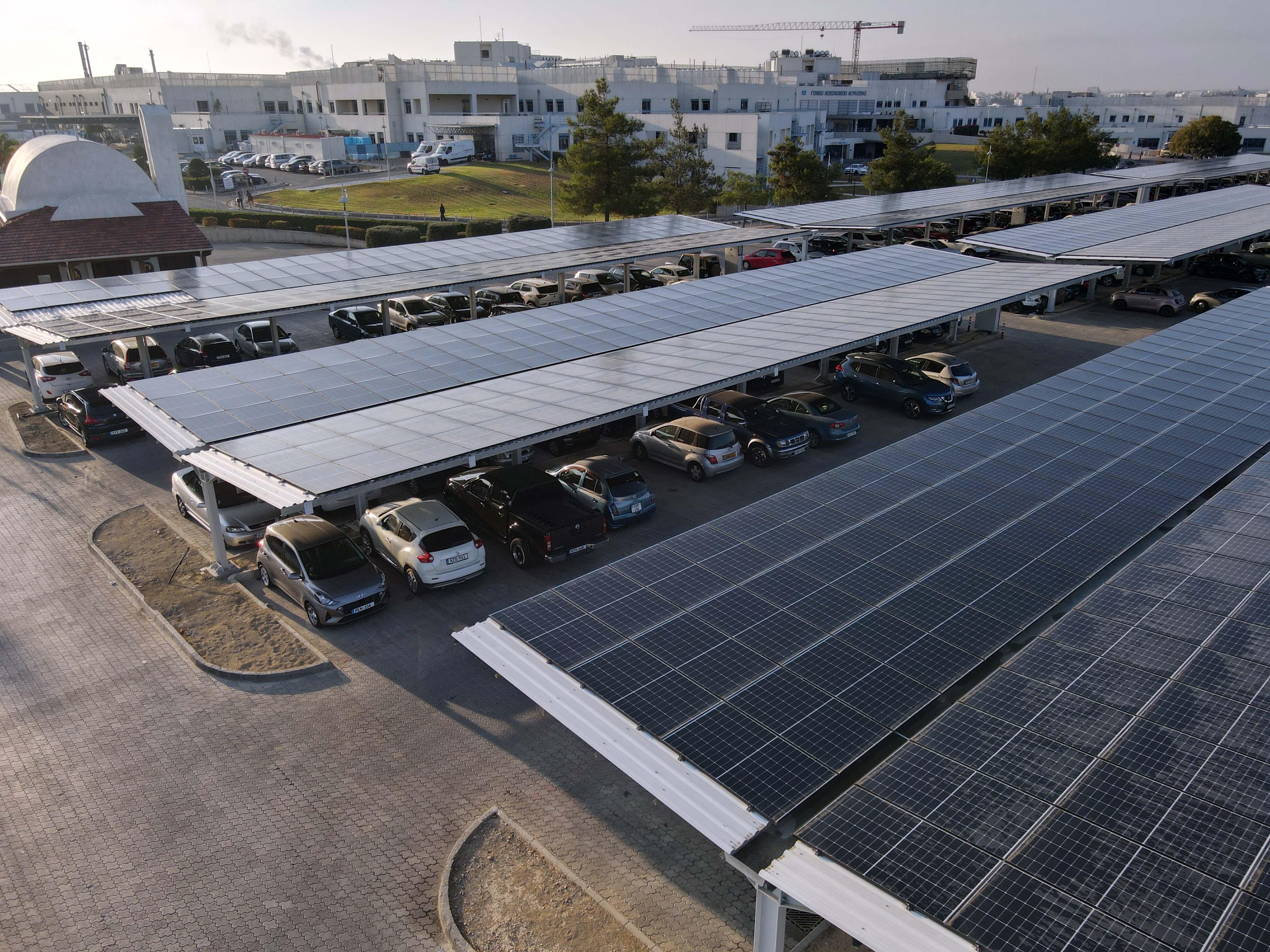A new photovoltaic park has appeared on the grounds of the Nicosia General Hospital. Work on the large-scale project, which took about a year, has finally been completed.
This was announced by the state health organisation (OKYPY) on Tuesday 27 August.
It should be noted that the solar power plant is located in the hospital's car park. The park has a capacity of 1.3 MW. It will generate approximately 60 MWh of energy per year and will be able to fully cover the needs of the medical facility. According to the idea, photovoltaic panels will convert solar energy into electricity. The panels will also be positioned to provide shade for parked vehicles.
The cost of the project is estimated at 1.8 million euros plus VAT. The money to make it happen came from the EU's Recovery and Resilience Fund. A spokesperson for OKYPY said that the new photovoltaic park is designed to meet the hospital's electricity needs, enabling it to provide high quality medical services in modern and upgraded premises.
It is worth mentioning that the project has been implemented by the contracting company Trikkis Energy Ltd. It will be responsible for its maintenance for 24 months.

Remember that several technologies are used worldwide to convert solar heat and light into electricity. The most common are:
- Photovoltaic (PV) devices, such as solar panels, which use semiconductors to convert sunlight directly into electricity.
- Concentrating Solar Power (CSP) plants, which use mirrors to focus sunlight on a central point, generating enough heat to drive steam turbines or engines to generate electricity.
- Solar Heating and Cooling (SHC) systems, which use the sun's thermal energy to heat water and cool the air, replacing the need for electricity or natural gas.
As Cyprus has almost 365 days of sunshine per year, the main solution to the problem of electricity saving is the construction of photovoltaic parks. Unlike burning coal, solar energy does not cause the greenhouse effect that exacerbates global warming. In addition, solar energy can play an important and cost-effective role in overcoming Cyprus' dependence on fossil fuels.
Improved ways of storing solar energy can also increase the sustainability of the energy system. By storing extra energy on sunny days, batteries ensure that electricity is available when the weather is cloudy or when cyclones knock out traditional power lines. As a result, consumers in Cyprus can enjoy more reliable energy at a lower cost. These ambitious investments are not only good climate policy, but also a great opportunity for Cyprus to invest in itself and its future.
